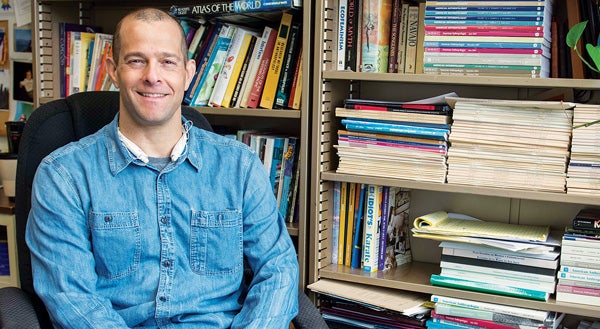A Missing Piece in Environmental Rights

When regulators react to declining fish stocks, the resulting restrictions can be disastrous for fishing communities. “There could be an alternative job in a factory elsewhere, but that could be a major loss in quality of life and social identity for the fishermen,’’ says anthropology and marine affairs professor Carlos García-Quijano. “It could be devastating for someone used to working outdoors and being his or her own boss to suddenly be working in a contained environment under a supervisor.’’
That’s one example García-Quijano and his co-authors use in a new study published in the journal Science, which concludes that protecting our planet is indeed a vital human mission—but can’t succeed unless the burdens and benefits of sustainability are shared equally.
“Environmental conservation and social justice are inseparable,’’ says García-Quijano, who lives in Providence. And these issues are becoming particularly pressing because the poorest people in the world are likely to be the ones most affected by climate change, he adds.
The study identifies six important social values: well-being; culture; values; equality; justice; and self-determination. While harder to quantify than, say, carbon emissions or income per capita, García-Quijano says they’re measurable by applying insights from social scientists, and must be included in environmental policy. “We have to stop looking at human beings and the natural world as separate,’’ he says. “Like other living beings, we’re part of our ecosystems.’’
 Home
Home Browse
Browse Close
Close Events
Events Maps
Maps Email
Email Brightspace
Brightspace eCampus
eCampus


